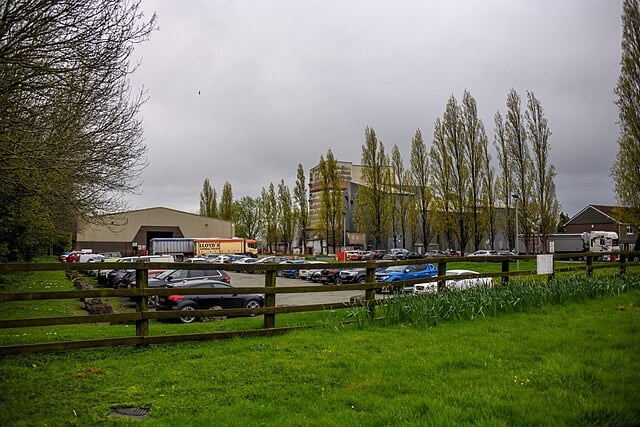Leicester academics claim rural Britain’s ‘monoculture’ fuels far-right sentiment in Leverhulme Trust-funded study
The British countryside has been branded “overwhelmingly white” and criticised for lacking halal food options in a new report that claims rural areas are failing to accommodate ethnic minorities adequately.
A review on “rural racism” from the University of Leicester’s Centre for Hate Studies has highlighted what it describes as “challenges” faced by those from ethnic minority backgrounds, claiming that Rural Britain’s whiteness causes “discomfort” and a “psychological burden” to minority groups navigating “white spaces”.
The academics behind “The Rural Racism Project: Towards an Inclusive Countryside” also claimed that pub culture and other “monocultural customs” in rural areas are not inclusive, calling for “thoughtful adaptation” and “sustained inclusion efforts” to make countryside communities more welcoming.
The report, which comes with a trigger warning, was based on interviews and “informal conversations” with 115 participants across England. It argues that “simple changes, such as the availability of halal food or spaces for prayer, could make a significant difference in whether people feel comfortable visiting the countryside”.
Professor Neil Chakraborti, the University of Leicester’s Hate Studies lead, worked alongside the centre’s deputy director Dr Amy Clarke and Professor Corinne Fowler, a professor of colonialism and heritage, on the two-year project funded by the Leverhulme Trust charity.
The study claimed that participants had experienced prejudicial “microaggressions” in rural areas, which it defined as “persistent and aggressive staring, hostile body language and deliberate isolation”. It also suggested that the British “monoculture” found away from multicultural cities could help to fuel “far-right sentiment”.
In a section titled “How Can We Make the Countryside More Inclusive?”, the report criticised rural areas for not doing enough to cater for “dietary norms that are rooted in religious or cultural practice”, with several Muslim participants noting the lack of halal food options as a barrier to countryside visits.
The academics called on business owners to improve “cultural sensitivity” in their rural establishments, stating: “Welcoming minoritised individuals into the countryside means more than tolerance; it requires thoughtful adaptation, sustained inclusion efforts and a willingness to change.”
The report also suggested that countryside communities could be revived “by bringing in more diverse communities” as part of a “broader rural regeneration strategy”.
Gavin Rice, of the centre-right think tank Onward, condemned the report’s framing. “Can you imagine if a bunch of academics published a report saying parts of the UK are too black, too Asian or too Chinese?” he said. “This report literally says the existence of areas where most people are white is racist. Over 90 per cent of the UK is white if you remove the major cities.”
The Countryside Alliance accused the report’s authors of “collating anecdotes” rather than conducting rigorous research. Tim Bonner, the group’s chief executive, told The Telegraph: “We would never downplay any individual act of racism, which must be confronted wherever it arises, but the narrative that rural communities are inherently more racist than urban ones is just nonsense.
Recent government hate crime statistics show an inverse relationship between rurality and racist hate crimes.
The research builds on previous work by the team, with the Centre for Hate Studies being described as “a world-leading research centre” that has conducted what it claims was the biggest study of hate crime victimisation ever undertaken globally, speaking to more than 2,000 victims.
Professor Fowler, who co-authored the report, previously worked on the controversial National Trust report examining colonial connections of country houses, which faced criticism for including Winston Churchill’s home Chartwell and attracted condemnation from government ministers.
The Leverhulme Trust, which funded the study, was established in 1925 under the will of the first Viscount Leverhulme, William Lever, founder of Lever Brothers (now part of Unilever). The Trust is one of the largest providers of research funding in the UK, distributing over £100 million annually.
The report’s release comes amid broader debates about diversity and inclusion in British institutions. Critics argue that such studies represent an overreach of academic activism into areas that don’t require intervention, whilst supporters claim they highlight genuine barriers faced by minority communities.
The research revealed that people had faced hostility in the countryside, including name-calling, racial slurs, intimidation and threats, according to the University of Leicester. Drawing from fieldwork undertaken throughout England, the project claims to offer “the most detailed account to date of what it’s like to live in or visit rural areas for members of minority ethnic communities”.
Professor Chakraborti, who has authored seven books and more than 50 peer-reviewed publications on hate crime, stated that the research aimed to challenge “dominant depictions of rural England as peaceful, neutral and apolitical” by investigating racism experienced by minoritised ethnic individuals in rural spaces.
The academics involved recruited 40 “Community Research Partners” from ethnic minority backgrounds based in various rural villages and towns across the country, who co-produced research data in the form of stories, photos, poems and other arts-based media.
However, the report’s recommendations and conclusions have sparked fierce debate about whether rural communities genuinely need to adapt their centuries-old customs and traditions to accommodate different cultural preferences, or whether such demands represent an unreasonable expectation for change in areas that have maintained their character for generations.
The controversy highlights ongoing tensions in British society about integration, multiculturalism, and the preservation of traditional ways of life in rural communities that remain predominantly white British in their demographic composition.
Follow for more updates on Britannia Daily
Image Credit:
Oswestry Rural: Lloyd’s Animal Feeds — photo by Lewis Clarke, taken on 19 April 2024 in Oswestry Rural, Shropshire, England. Licensed under [Creative Commons Attribution-ShareAlike 2.0 Generic (CC BY-SA 2.0)]



